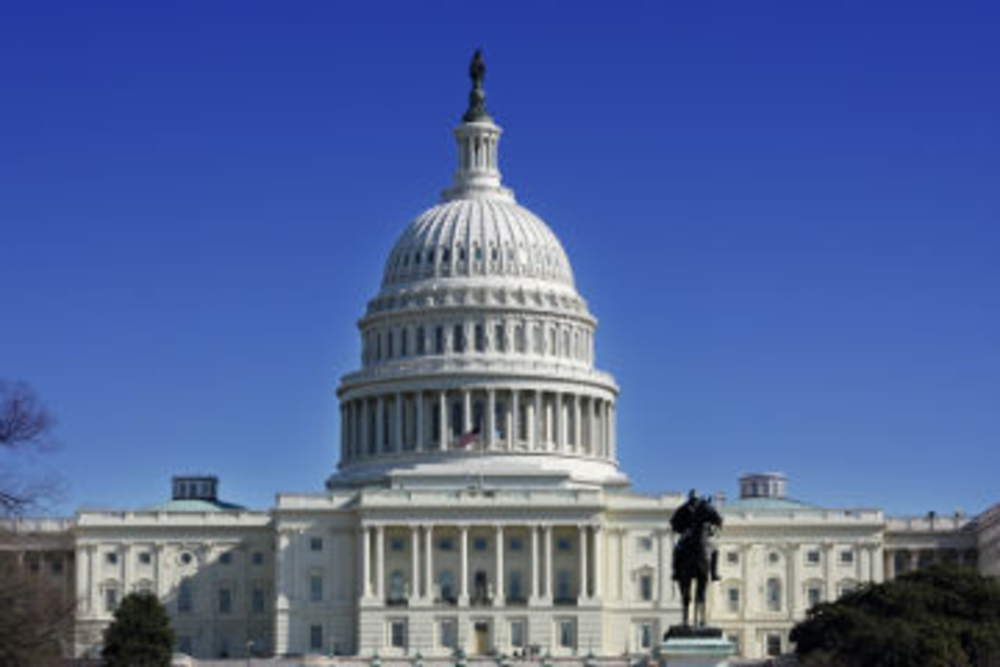The Direct Marketing Association (DMA) wrote a letter to the U.S. Senate discouraging its members from passing the current draft of the Marketplace Fairness Act (S.743)—a bill that would give states the power to require remote sellers, including e-commerce sites and catalogers, to collect sales tax. The Senate agreed to move the bill to the floor for debate in a 74 to 20 procedural vote that occurred Monday evening.
In the letter, the DMA claims that the Marketplace Fairness Act “has not received a full vetting and markup in a Senate committee” and asks that the Senate not pass the bill until outlined simplification requirements are met.
“We don’t think the senate floor is the best place to have the first markup on a piece of legislation that is as sweeping and important as this one is,” says Ron Barnes, DMA’s VP of state affairs.
Barnes says that the bill treats all businesses accumulating more than $1 million in gross sales equally and is thus particularly burdensome to small- and medium-size remote sellers who might not have the funds or resources to comply with sales tax collections, tax holidays, yearly audits, and additional administrative responsibilities. To level the playing field, Barnes says the DMA is in favor of providing small business exemptions within the bill.
“We don’t believe that compliance capabilities of a business with $1,000,001 in gross sales and the very largest companies the United States are equally weighted,” Barnes says. “As you start to grow and you get near the threshold, or just above the threshold, then all of these compliance efforts pile on top of you. It’s going to be accountants, [and] it’s going to be legal defense and audits. It’s going to be time and energy compiling information and filing taxes. That type of investment goes into investment in bureaucracy and not investment in growth.”
However, the DMA isn’t the only organization in favor of small business exemptions. Internet giant eBay has also expressed its support for small business exemptions.
“The current Internet sales tax bill would impose unfair taxes and burdens on small businesses that use the Internet, treating them the same as large national retailers who have the resources and capabilities to collect sales taxes nationwide,” Tod Cohen, general counsel and VP of government relations for eBay, said in an emailed statement. “eBay believes that there is a fair and simple solution: small businesses with less than 50 employees or less than $10 million in annual out-of-state sales should be exempt. We are asking the eBay community to join us in calling on Congress to protect small businesses.”
But not all Internet retailers agree with eBay’s stance. On August 1, 2012, Amazon VP of global public policy Paul Misener testified before the U.S. Senate Commerce Committee and said that “Amazon believes that Congress should authorize the states to require out-of-state sellers to collect the sales tax already owed.” Misener also sent a letter to senators Richard J. Durbin, Mike Enzi, Lamar Alexander, and Heidi Heitkamp on February 14, 2013 thanking them for their bill.
“When enacted, your bill will protect the states’ rights to make and maintain their own revenue policy choices, without new taxes or federal spending. Your bill also will facilitate compliance with state sales tax laws by consumers and retailers,” Misener wrote.
“If you look at Amazon’s game plan, it’s very clear that they’re rolling out distribution centers in all sorts of states,” says Hamilton Davison, president and executive director of the American Catalog Mailers Association (ACMA). “I think they’re going to be in 30 states by the time they’re done.”
The Marketplace Fairness Act was proposed in response to the 1992 Supreme Court ruling of Quill Corp. v. North Dakota—a case that debated whether office supplier Quill Corporation had to collect sales tax on items shipped to North Dakota despite the fact that Quill did not have a physical store in that state. Quill was exempt from paying the tax.
However some retailers with online and physical presences, such as Target, still believe that requiring remote sellers to collect sales tax is only fair.
“Target is encouraged that the Senate is considering this important issue, and that there has been bipartisan support for the Marketplace Fairness Act,” a Target spokesperson said in an emailed statement. “We will continue to advocate for this legislation, as we believe it creates a level playing field for retailers.”
Notably, Internet retailers are not the only remote sellers impacted by this bill. The ACMA also wrote a letter asking those in the catalog industry to contact senators about reconsidering the current bill’s draft. Davison says the complexity of the bill is “nonsense” and “a nightmare” for catalogers.
“In the catalog industry, 11% of orders received are received via mail with a check,” Davison says. “There are people who don’t have broadband access, or aren’t comfortable using the Internet, or don’t feel good about the security of the Internet and choose, for whatever reason, to use a paper order form. How do those people even begin to calculate the tax due?”
According to a May 2012 U.S. Census Bureau E-Stats report, B2B companies accounted for 89.7% of 2010’s e-commerce activity, while B2C companies only accounted for 10.3%. Hence, Davison anticipates that the bill will generate low net benefit but high costs and complexity.
“There’s no reason that your home state can’t audit this and forward the results to every state. For that matter, there’s no reason that if you want to change the law, [you can’t] have your home state responsible for collecting some unified or consolidated tax rate amount and then portion it out to the other states,” Davison says. “Why do you have to deputize [remote marketers] and put them into the cycle of doing your work for you, and, frankly, right now, without any compensation? It’s just a great example of unintended consequences and bad government and there’s no reason for that to occur.”








